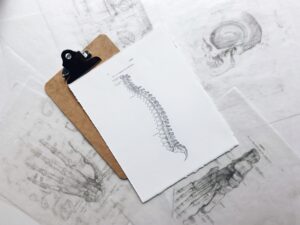Any kind of surgery on your spine comes with risks. The spine is a crucial and sensitive part of the body and doing any procedures in the area can have complications.
Some complications from scoliosis spine surgery are minimal while others can have a lasting impact.
However, experiencing complications from scoliosis spine surgery is uncommon – between 13% and 26% of people who have surgical treatment to correct scoliosis have problems afterward.
Complications from scoliosis spine surgery may present themselves immediately after the procedure or develop over time. If a complication happens within the first few weeks after a surgical procedure, it’s considered an immediate risk.
The risks of scoliosis spine surgery vary between individuals. Possible complications may range from mild pain where bone chips were removed to blood clots, infections, and lung complications.
Complications from scoliosis spine surgery are rare, but they can be serious and life-threatening. If you’re considering a scoliosis spine surgery, you should understand the immediate risks and what it can mean post-operation.
Complications After Scoliosis Surgery
Complications after scoliosis surgery may occur for various reasons. For example, complications from blood transfusions during surgery may pose a risk, alongside neurological complications and infection.
During surgery, you will lose blood. Often times, doctors use blood transfusions to replace the blood a person uses during surgical procedures.
If you receive blood under any circumstances, you’re accepting risks. While blood transfusions are generally a safe and life-saving treatment, they may introduce dangerous viruses like HIV/AIDS or Hepatitis C into your system.
The chance of contracting of blood-borne virus like HIV or hepatitis from a blood transfusion is less than 1 in 3 million, but you can minimize your risk by pre-donating your blood before surgery. You can ask your doctor to take some of your blood before they correct your spine so they can use it post operation instead of another donor’s fluids
Neurological conditions are the most frequently associated complications with spine surgery. You may have heard stories of people who experience neurological problems after spine surgery, including severe conditions like paralysis.
While many neurological complications from scoliosis spine surgery or not as severe as paralysis, they may include other troubling conditions like:
• Numbness
• Weakness
• Loss of physical sensation
• Loss of bowel function or bladder control
The chance of experiencing neurological complications after scoliosis spine surgery are between 1% and 4%. Severe complications of paralysis and loss of bowel or bladder control occur in less than 1% of patients.
Ultimately, the most common complications of scoliosis spine surgery or infection. Infection can be superficial or deep into the body, depending on the type of bacteria and how it was introduced. Superficial infections occur on the surface of the body where the incision is located, while deep infections occur within the spinal column.
If you experience infection after a scoliosis final correction surgery, you may experience symptoms as soon as a few days after your surgery or as late as several years post-operation. It depends on the bacteria that are causing infection and where it is located. Superficial infections generally show themselves sooner after surgery and heal more quickly.
When patients have infections after scoliosis spine surgery, their doctor may prescribe antibiotics to manage the issue. If the infection is severe enough, you may need surgery to clean out the affected area.
The risk of developing a deep infection after scoliosis spine surgery is about 2%, but higher for superficial infections. You can prevent superficial infections after surgery by treating your surgical incision properly and keeping the area clean.
Depending on where you have your scoliosis surgery, you may experience long complications after the operation. Lung complications are common in patients who have surgery on the front of their spine. They are far less common in individuals having surgery on the back of their spine.
Typical lung complications after a scoliosis correction surgical treatment include:
• Pneumonia, caused by inflammation in the patient’s lung tissue.
• A collapsed lung (partially or completely collapsed)
• Fluid buildup in the lungs
If you experience fluid buildup in your lungs or you have a collapsed long after spinal surgery, your doctor will use a chest tube to drain the fluid and correct the damage. If you have pneumonia and inflammation of your lung tissue, your doctor will prescribe a round of antibiotics
Finally, you may be at risk of a urinary tract infection after you have scoliosis spine surgery. During the first few days after your operation, your doctor will insert a small tube (called a catheter) to help your bladder drain urine. Anytime you have a catheter, at risk of developing a urinary tract infection. Fewer than 1% of scoliosis surgery develop a UTI post-operation. Call us today at 205-637-1363.







